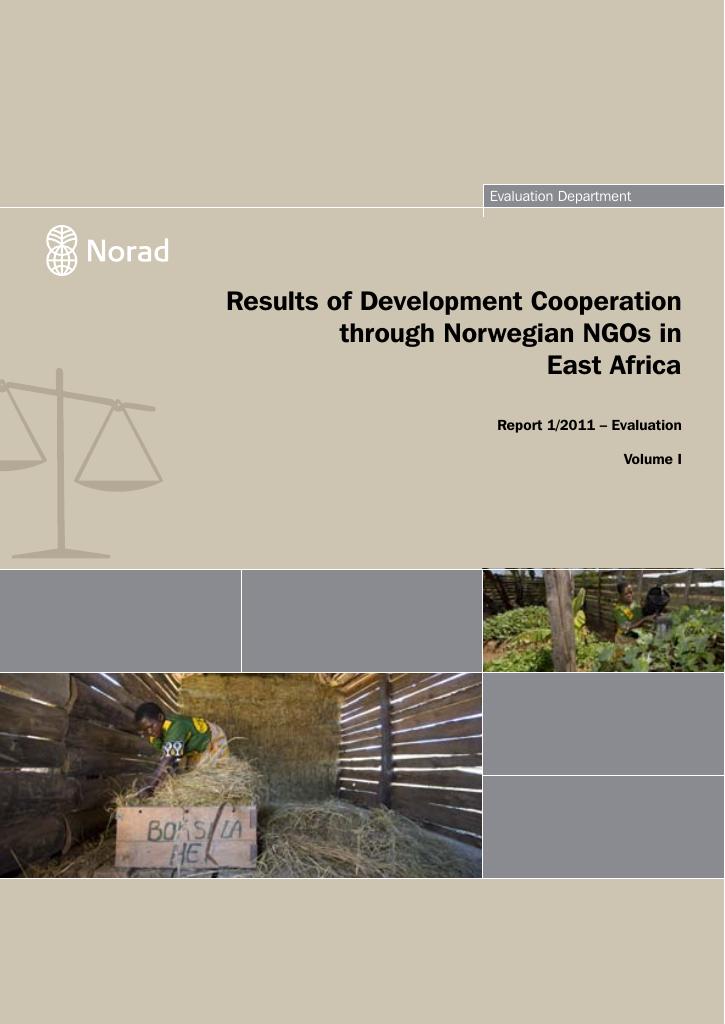Evaluering
Results of Development Cooperation through Norwegian NGOs in East Africa
In 2006 the Rattsø Commission, established by the Norwegian Government with the mandate to assess the role of the Norwegian civil society in development cooperation, recommended that the Government should take more responsibility for evaluation of the work of Norwegian Civil Society. The evaluation of the results of development cooperation through Norwegian NGOs in East Africa is the third evaluation report commissioned by Norad’s evaluation department in response to the Rattsø Commission. It aims at assessing the achievements of Norwegian organisations and their partners in 15 randomly selected long-term development projects operating in Kenya, Tanzania and Uganda from 2005-2009. The evaluation questions focused on how and to what extent intended results have been achieved and to what extent the organisations apply results based management approaches. This also included an assessment of how results are documented, how the organisations and project activities contribute to strengthening local civil society and whether the projects are relevant to the target groups. The report concludes that the studied projects were in line with Norwegian government policy for development assistance and achieved their intended results to a high extent, and that in most cases the project activities do contribute to strengthening local civil society. The projects’ objectives were in line with Norwegian priorities, and with the priorities of the host governments. There was a focus on poverty alleviation, women and children. However, the system has significant scope for improved transparency, efficiency and effectiveness. The report documents great variation among the NGOs in terms of the extent and quality of preparation and documentation, and a lack of transparency in the funding chain. In most cases the NGOs do not invest sufficiently in project preparation, and insufficient documentation were found at all phases of the project cycle. The target groups were vulnerable or excluded and many of the projects were located in marginal and insecure areas in the poorest regions of their countries. This may partly explain that there were little or no involvement of target groups in project design and monitoring. Active participation was seen as a result rather than as a process in a majority of the projects. ii Results of development cooperation through Norwegian NGOs in East Africa The overall achievement, assessed to be 73-85 per cent of intended results, is a bit higher than more general findings in evaluations, i.e. that between two thirds and three quarters of development programmes succeed in achieving their intended results. One should, however, take into account that only projects that had been active for a certain number of years were selected, thus excluding possible projects stopped at an early stage due to failure. The evaluation has been carried out by Ternstrom consulting AB supported by experts in the countries studied.' Asbjørn EidhammerDirector of Evaluation
